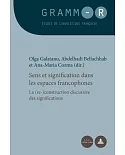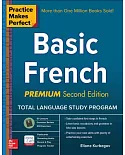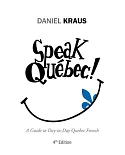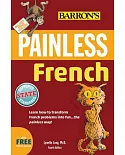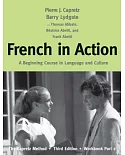La culture francophone :
Le monde à l’écoute is an innovative textbook for intermediate to advanced French courses that introduces the francophone world and its literatures in
an authentic cultural context. Through the book’s 11 chapters, students travel the francophone world from L’Afrique Subsaharienne to Les Petites et Grandes Antilles to Le Belgique, learning
its histories and geographies, reading selections from classic francophone texts, and experiencing the food, films, and music of its peoples. More than just a francophone reader,
Le
culture francophone is an itinerary in which the student journeys through the history and culture of
la francophonie, meets its people, and experiences their world as it is
performed in context.
Features:
-
Eleven chapters covering a variety of francophone regions, including regions in North and Subsaharan Africa, America, and Europe, provide students with an introduction to the
variety of la francophonie
-
A standout array of exercises, such as pre-reading and pre-screening worksheets; comprehension, interpretation, and discussion questions; and composition exercises (“Expression
écrite” activities); offers an effective practice in reading, writing, analysis, and discussion of upper-level French texts and dialogue
-
The study of engaging, authentic feature films such as Chocolat (Claire Denis) and Rue Cases Nègres (Euzhan Palcy) is integrated into the text allowing students to encounter French
performed in context
-
A variety of classic, literary selections from Ferdinand Oyono’s “Une vie de boy” to Ernest Pépin’s “L’envers du décor” allow students to intensively study the literature of la
francophonie
-
Multi-sensory activities including tasting/preparing regional culinary dishes (“Arts culinaires” sections) and listening to francophone music on YouTube and studying song lyrics
(“Musique” sections), provide students with opportunities to become active participants in the learning process
-
An integrated companion website (courses.pullins.com) with streaming recordings of French speakers discussing contemporary issues such as the autonomy in Martinique, or politics
around the Islamic veil in France, along with exercises to engage students in speaking and learning about issues in the francophone world







